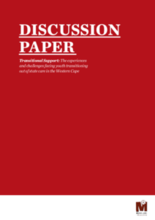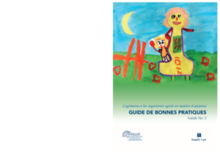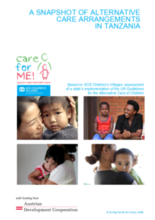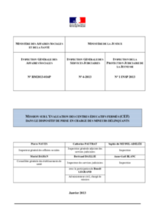Demographic Data
|
Sources: World Bank, UNICEF, UNDP HDR 2015, DHS 2013 |
Displaying 12811 - 12820 of 14562
This report from SOS Children’s Villages assesses Malawi’s compliance with, and implementation of, the UN Guidelines on the Alternative Care of Children.
This article explores the implementation of a system in Malaysia, where mothers or guardians who choose to abandon their baby are enabled to do so anonymously within a safe environment.
In 2012, Mamelani began an assessment of the content and focus of its transitional support programme. The aim was to consolidate its existing practice as well as to discover and implement new ways of ensuring more participants in its programme make a successful transition out of care.
S’efforçant de placer la situation des orphelins du Mozambique dans son contexte régional, celui de l’Afrique australe, et s’inspirant d'études sur le terrain tant quantitatives que qualitatives, cet article examine les différents modes de prise en charge des orphelins et la politique de protection qui leur est applicable au Mozambique, en s’intéressant tout particulièrement aux enfants qui vivent dans des centres d'hébergement ou qui fréquentent les foyers d'accueil.
Ces publications sont plus particulièrement destinées aux Autorités des Membres de la Conférence chargées d’appliquer les Conventions et peuvent représenter une source d’information utile pour les praticiens – juges, avocats, huissiers, travailleu
This report and research conducted by SOS Children’s Villages reviews alternative care arrangements in Tanzania.
L’inspection générale des services judiciaires (IGSJ) et celle des affaires sociales (IGAS) assistées de l’inspection de la protection judiciaire de la jeunesse (IPJJ) ont été saisies par les Ministres de la Justice et des Affaires sociales et de la Santé d’une mission d’évaluation des centres éducatifs fermés (CEF) dans le dispositif de prise en charge des mineurs délinquants.
Adoptive families are now using the Internet to give their unwanted adopted children over to complete strangers, some of whom are traffickers, pedophiles, child pornographers, or worse. This practice is known as private rehoming.
This article provides an overview of the situation of children affected by international migration and the national and international policies in place to protect those children.
The purpose of this qualitative research was twofold: the first was to explore the phenomenon of homebound girls in Jordan and to understand the reasons that led to their confinement. By shedding light on and investigating this phenomenon, the second purpose of this research, in turn, was to identify possible interventions to allow these girls access to education and strengthen their social development.








